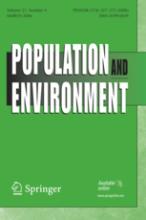Resource information
The paper first describes the interactions between population growth, land use, and environment in Rwanda, a small, densely populated landlocked nation in the East-African Great Lakes region. These interactions are modelled using a conceptual framework applied to the neighboring Kivu region in Zaire, but adapted to the Rwandan case study. Second, the paper contends that the emphasis put on increasing agricultural production, mostly through the use of marginal land, as well as the lack of a timely implementation of a family planning program and a national population policy, have led to a worsening of the interactions between population growth, land use, and environment. In an attempt to demonstrate this hypothesis, demography-driven projection scenarios are applied to the agricultural colonization and intensification processes.


